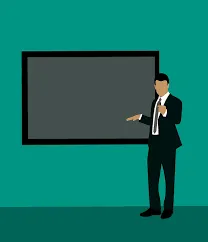After teaching for 18 years, I was nominated for a full-time professional development for 10 weeks.

It was definitely a challenge to tune back to student mode again and still loading my brain with different pedagogy and teaching strategies.
During the course, it was a requirement to write reflection journals for the workshops attended as part of the assessment requirement.
The reflection journals were based on learning themes. It can be various workshops but fall under the one theme.
Know how to summarise my key takeaway is also a challenge especially when there are so many workshops from different days under the same theme.
What is the most valued idea in your lesson?
As teachers, we often already know what is the key concept and learning outcome that we want our pupils to achieve in a lesson.

We can deliver a fantastic and elaborated lesson with powerpoint slides and hands-on activities.
At the end of the lesson, we thought that our students had learnt what we wanted to teach.
Does teaching a lesson always result in students’ learning?
The brutal fact is you can teach but your students may not necessary learn.

That is why the concept of formative assessment comes into the picture of modern classroom.
We need to assess whether our students have gained the important information that we want them to learn.
Start it right
I agree that it is really helpful to set the end in mind where we state the learning outcomes of the lesson at the beginning of our lesson before we start drilling into our lesson plan.

It is greatly encouraged to focus on only one key concept for each lesson so that the key idea will not be diluted.
By doing so, students will know what is the purpose of the lesson and what they are supposed to learn.
Check for understanding
During the lesson or at the end of the lesson, you can always check with students what is the key idea that they have noticed or learnt.

Getting them to elaborate using their own words can definitely allow teachers to fish out possible misconceptions to address during the next lesson.
This is the part where you can put your questioning techniques to use.
By using questioning techniques often, you can get used to doing so and once it becomes a habit, it becomes your natural teaching style. Getting started can be rather deliberate before it becomes natural.
Using Hinge Point Questions
This is a good way to check whether your students are ready to move on to the next topic.
It is a diagnostic thinking question that provides teacher to rectify or reteach when pupils do not understand and move on if they already understand the key concept.
My Math example of a hinge point question:
Arrange the following numbers into the smallest 4-digit number.
0, 3, 9, 1
If the students arrange them into 0139, you can tell that your students do not understand by having ‘0’ in front of the set of numbers, it becomes a 3-digit number rather than a 4-digit number.
Using notebook
Getting students to write their own reflection of each lesson can be helpful just like what I am going through with my 10-week course.
I was literally forced to thinking what I had learnt with the need to summarise many of the workshops together under the same theme.
By getting students to summarise the key idea that they have learnt, it also help them to recall what they have written when they need to do revision.
Getting our students to have this habit can help them to identify and summarise their own future learning even in their adulthood.
In conclusion
Teaching a lesson does not always result in learning to take place. Different students have different learning needs so one size fits all is no longer possible.

Our students are exposed to the fast moving technology where they have very limited concentration level so crafting a well-designed lesson with student profiles in consideration is crucial.
Checking students’ understanding and their reflection can verify that they have learnt what you have intended to teach.


Disclaimer: This is my personal reflection and I am not in any position to instruct anyone what they should do. I am not responsible for any action taken as a result of this post. My post can only be a reference for your further research and growth. By reading this post, you acknowledge and accept that. All images and pictures were taken from google images that are free from copyright under labelled for reuse.
Posted from my blog with SteemPress : http://fun2learn.vornix.blog/2018/07/17/does-teaching-learning/